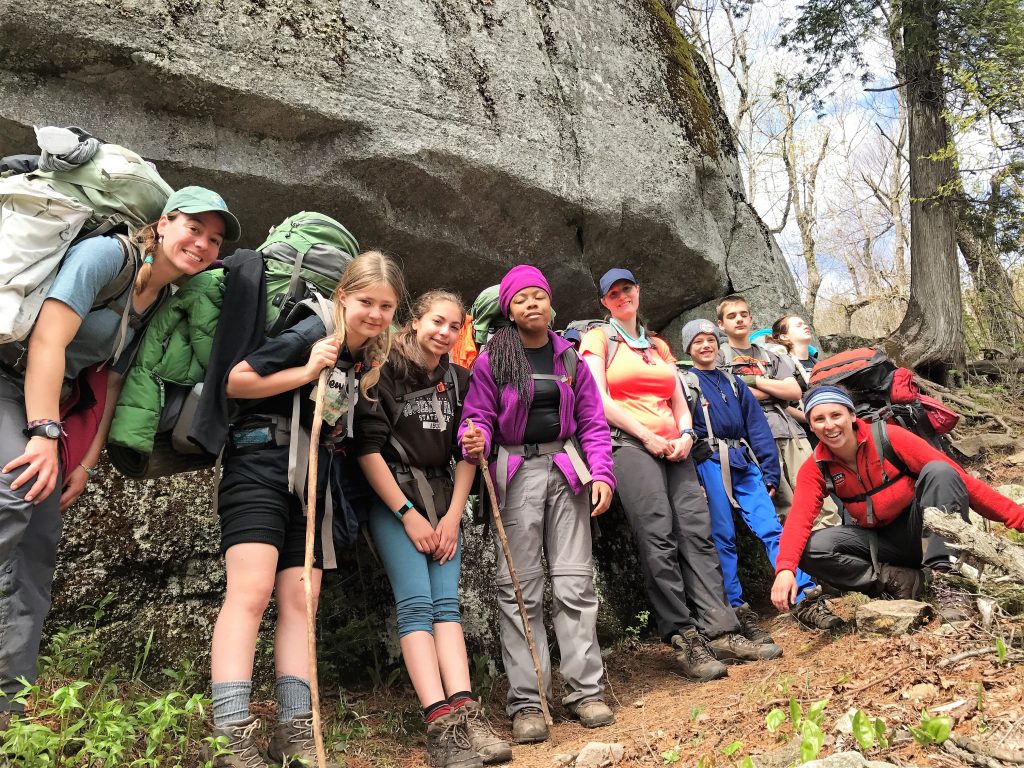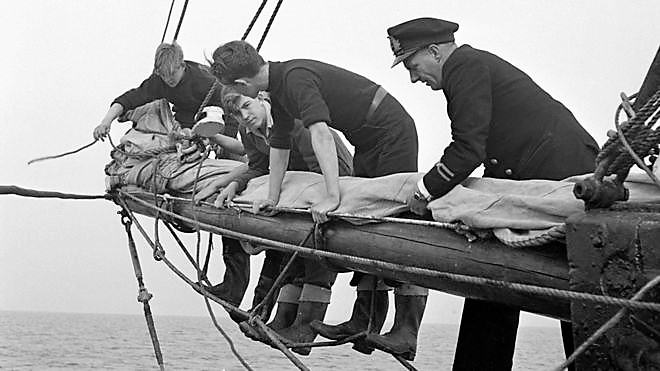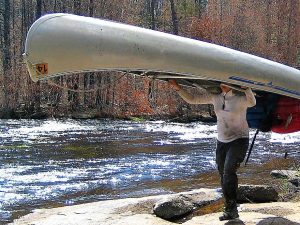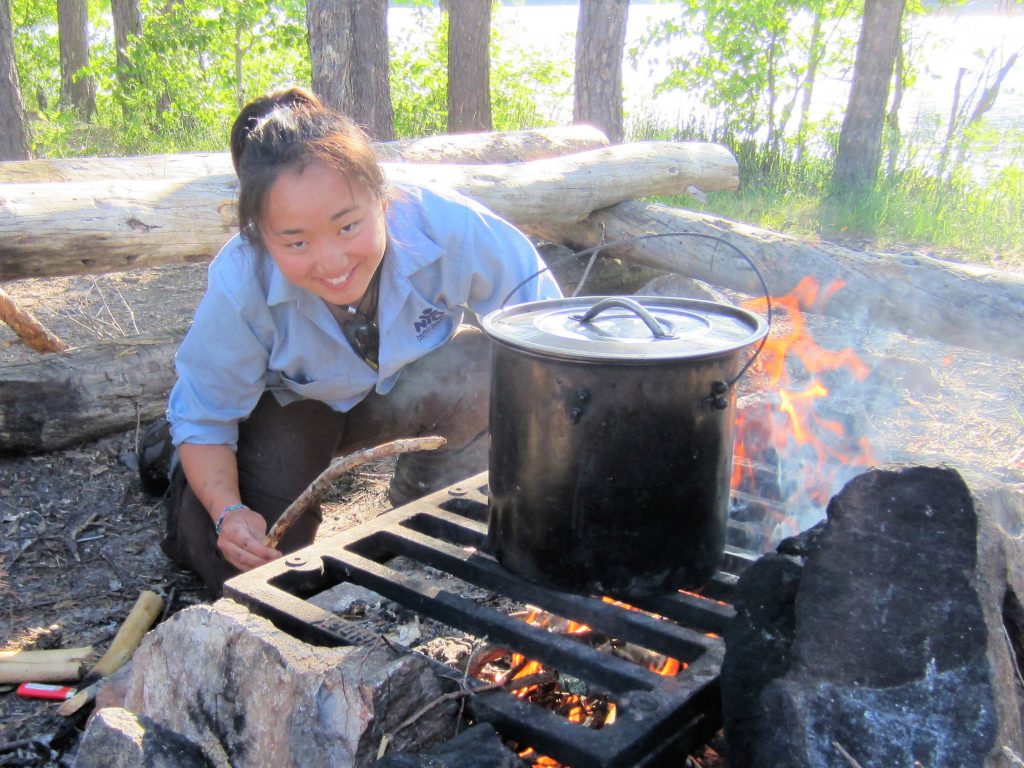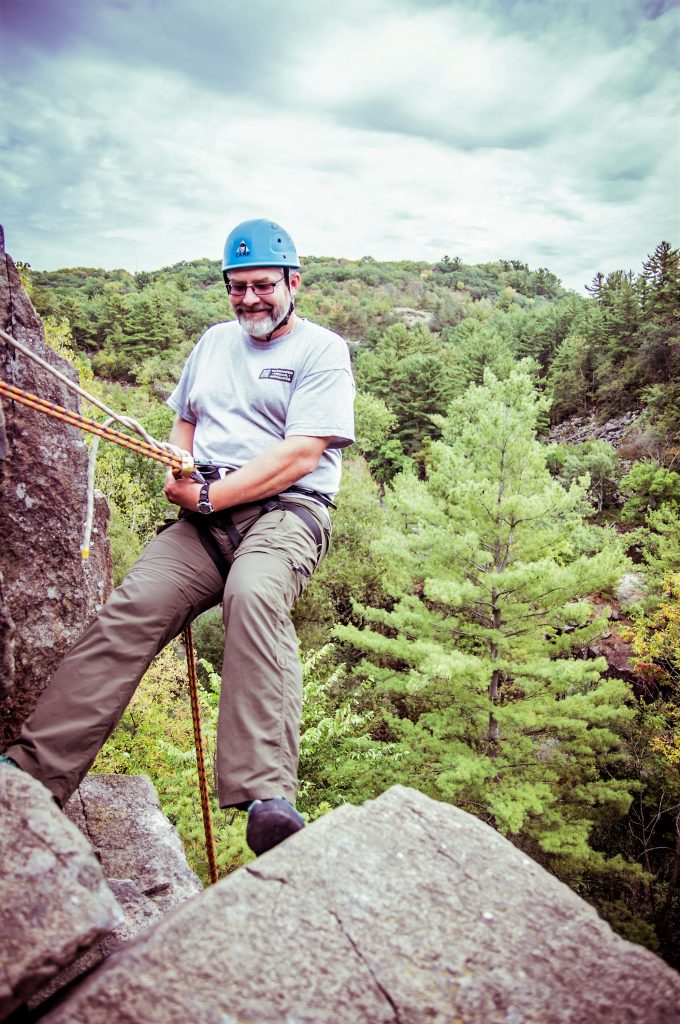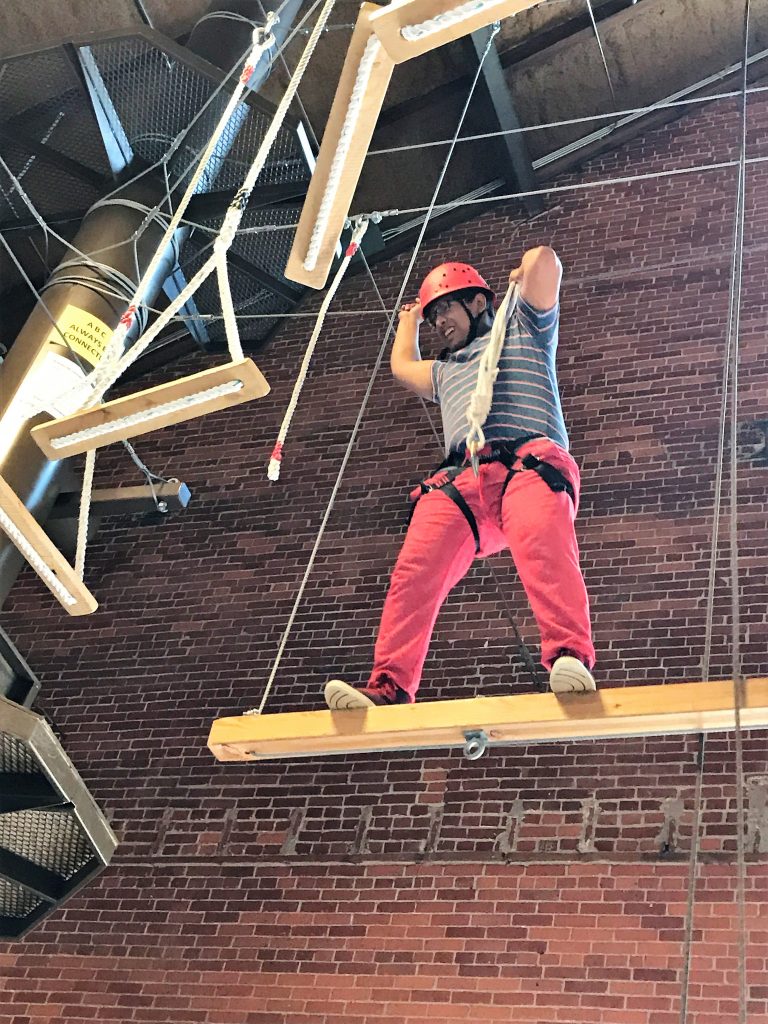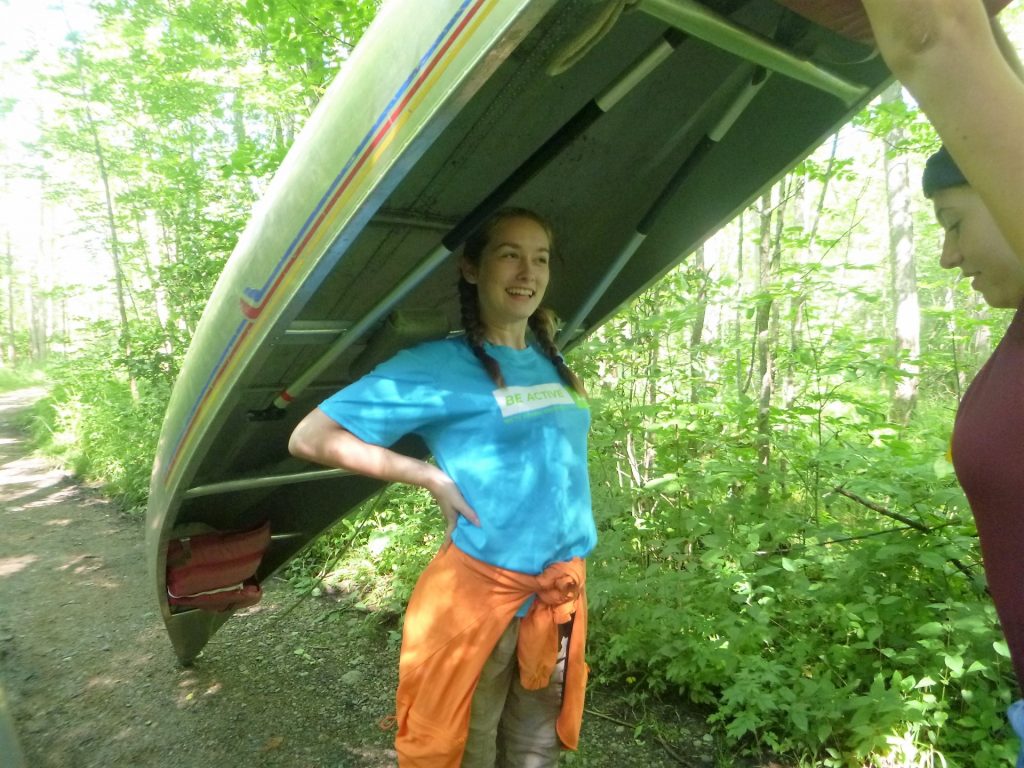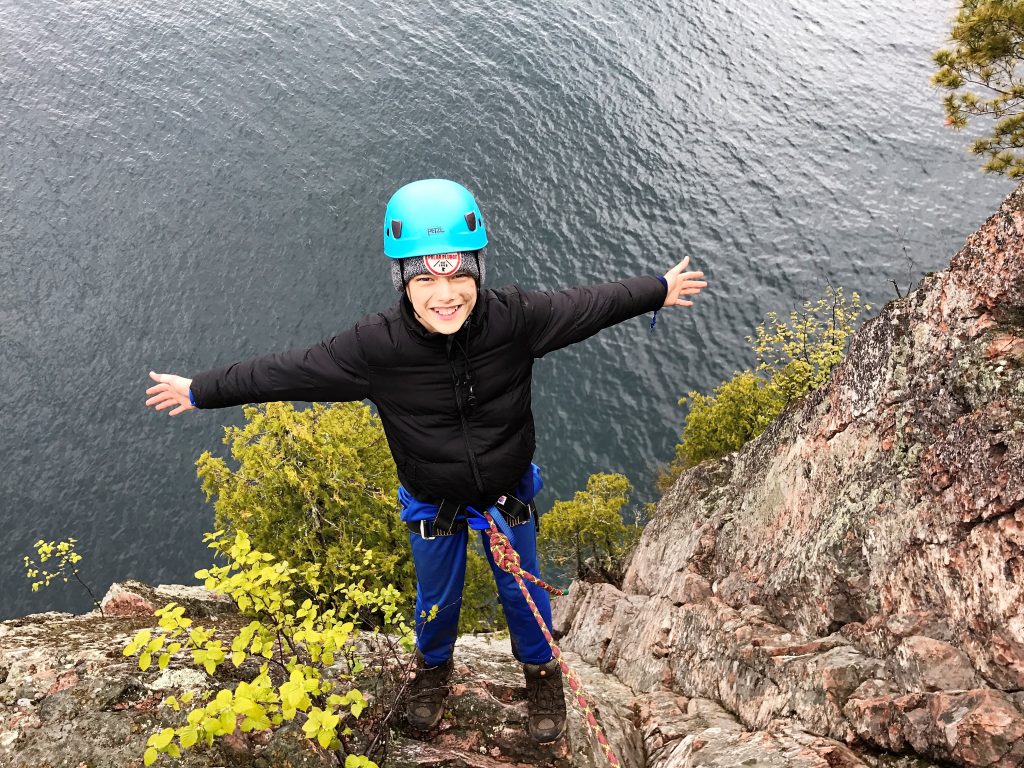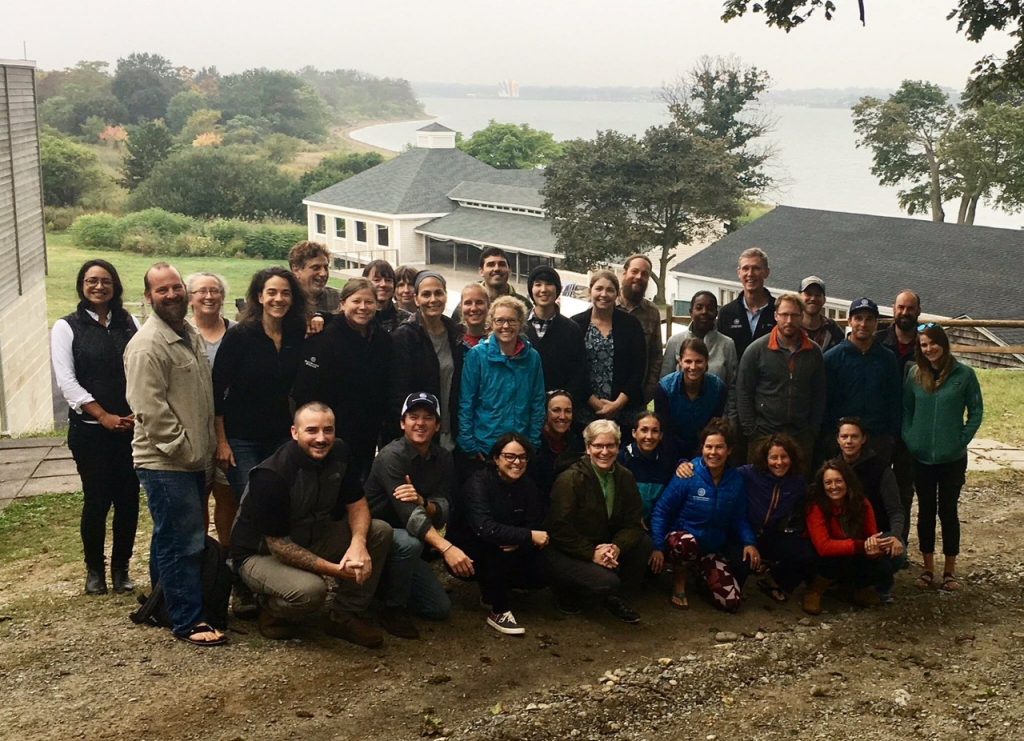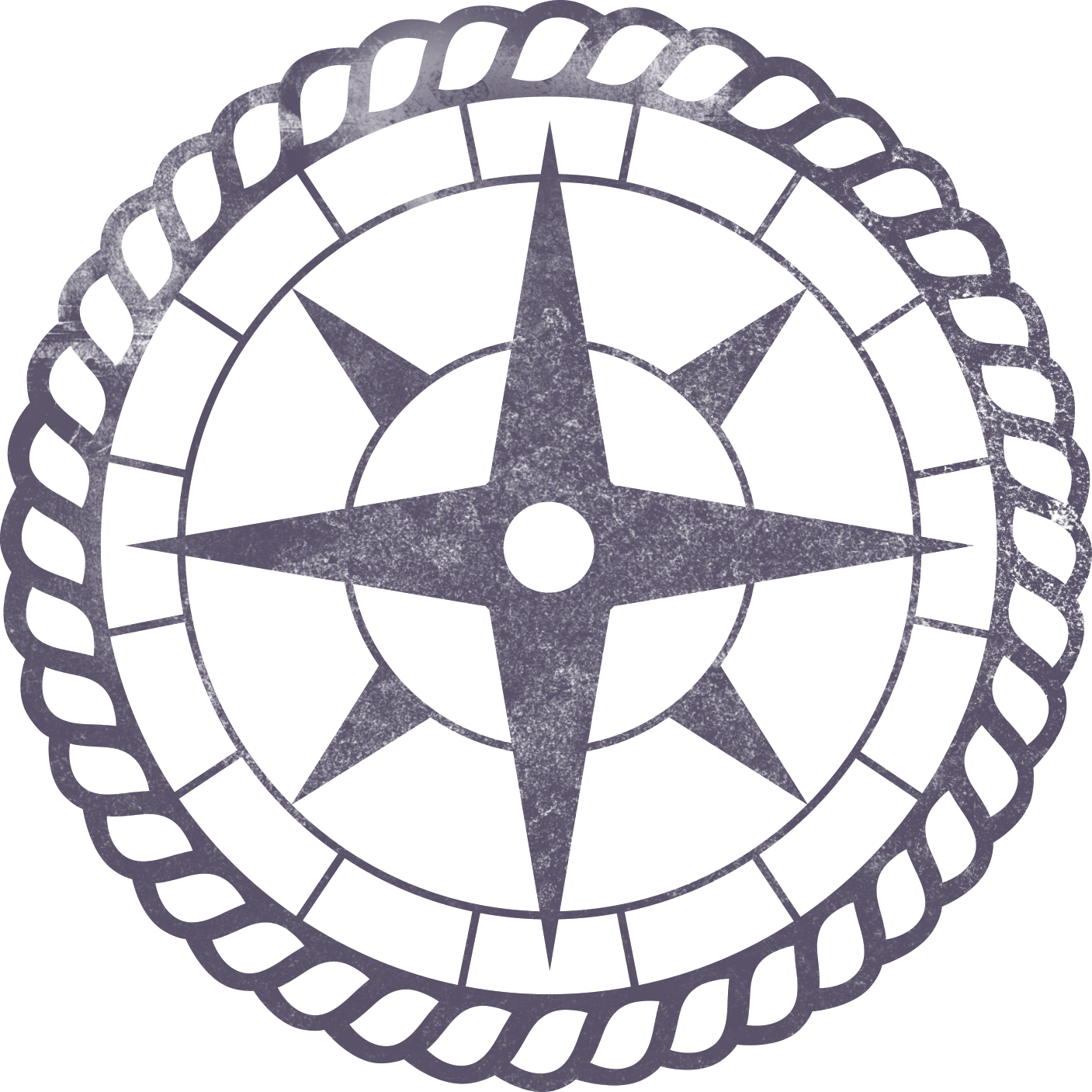During a recent meeting with educators at a leading research institution, we heard an interesting comment:
I’ve known about Outward Bound for long time, but I never knew it was a school.
Aha! This is a dilemma! With all due respect to the truly thoughtful leader who made this observation, if you don’t know Outward Bound is a school, you don’t yet know Outward Bound.
Outward Bound is a school.
Why? We have teachers, students, a classroom and a pedagogy.
We have over 1,000 highly trained instructors who deliver experiential, nature-based character education to more than 35,000 students annually through a network of 11 schools across the nation.
Our first school, Aberdovey, was founded in Wales in 1941 by a progressive German educator named Kurt Hahn. Hahn understood that people who survive and thrive in this world do so because they have experiences that build their skills and capacity. Without experience, people do not learn and grow.
I hear, I know. I see, I remember. I do, I understand.
Confucius
From babies to centenarians, experience teaches us. Eating, drinking, language, love, dancing, driving, sewing, writing, coping, overcoming. Try, fail. Try harder. Accidental or on purpose, we learn from things that we do, or things that happen to us. Touch a hot thing, you get burned. Stick something in your mouth, and you learn it has a taste, and maybe you chew it and just maybe you swallow it, and, it isn’t poisonous, it might nourish you…and you grow. You can’t climb a tree, without a tree and some guts. We call this hands-on means of acquiring knowledge experiential learning or “ex ed.” From Confucius and Aristotle to Maria Montessori, John Dewey, Kurt Hahn, Paolo Friere, Carl Rogers and David Kolb, the relationship between doing and learning has been recognized, studied and celebrated.
Experience is, for me, the highest authority. The touchstone of validity is my own experience. No other person’s ideas, and none of my own ideas, are as authoritative as my experience.
Carl Rogers
Some things we ace over time through a diversity of experience. New mothers fly by the seat of our pants through a combination of unforseen challenges, advice and repetition. By the time the 2nd child comes around, we’ve had a lot of experiences and hopefully we mother a little better. Some things we prepare for not only by learning every component of a task, but by practicing that one task with such single mindedness that we succeed, then we win the Super G, tie a cherry stem in a knot with our tongue, skip double dutch or catch a tarpon on a fly. Whatever the learning, it happens through experience. And whatever the experience, it teaches us at least something, if not many things.
Scientific observation has established that education is not what the teacher gives; education is a natural process spontaneously carried out by the human individual, and is acquired not by listening to words but by experiences upon the environment.
Maria Montessori
Hahn understood that learning has a progression. First we try something new, and if we want or need to, we do it again. Maybe we fail, and we figure out why we failed. We adjust, change, correct and next time, maybe we do it better. When we do it better, if we keep doing it, then maybe we master it. Docking the 600 foot freighter, ministering to the survivor, changing the diaper, tying the trucker’s hitch, delivering bad news with compassion…Maybe we get so good at doing something, we don’t need help anymore, we just do it ourselves and lead with our skill.
We don’t receive wisdom; we must discover it for ourselves after a journey that no one can take for us or spare us.
Marcel Proust
At Outward Bound, we call this progression of learning the “Theory of Change.” Train to a new skill, learn it. Practice it and master it. And once you have that skill, it’s yours, part of your skill set, your toolbox, and you can even teach other people how to do what you do well. Outward Bound’s Theory of Change is underpinned by something fundamental: belief in human potential.
At Outward Bound, we believe that every person has the ability to grow. That’s every person. Back in the day, Kurt Hahn’s belief in human potential was so radical, that it was too radical for 1930s Germany. If you believe everyone has potential to grow into mastery, you nullify discrimination. So, after founding the Salem School, Hahn fled Nazi Germany for England in 1933.
In England, Hahn’s belief in human potential was radical too. He noticed that working class folks had skills that leisure class blokes lacked. Working for a living, getting by on limited resources, surviving in less than ideal conditions– not to mention the skill and knowledge inherent in complex trade work– Hahn recognized that less fortunate people possessed a diversity of essential, life skills that more fortunate folks might lack. He posited that an educational model or school, to be truly effective, had to bring a diverse student population together to learn with and from each other. Why was this so radical? It not only upset power structures in society, it reorganized the power structure of the classroom. Hahn recognized the student as a resource, not an empty bucket waiting to be filled up by someone who had all the info and knowledge. Mixing social classes, decentralizing the classroom and placing an active, doing student at the center of learning was as radical in 1940s Britain as it still is today in many parts of our world.
The aim of education should be to teach us rather how to think, than what to think—rather to improve our minds, so as to enable us to think for ourselves, than to load the memory with the thoughts of other men.
John Dewey
So Outward Bound is “rad” because it all hinges on the premise that not only do you have the potential to grow and contribute unique skills to your community, but everybody else does too. We learn best by doing, and we learn best by doing with and for each other. This is sometimes called “servant leadership.” We lead best together, as a crew. Each individual contributes her personal skills to the shared goals of the group, and each steps aside to let the special gifts of others shine as well. At Outward Bound, people travel together, pursuing small and large goals: shoulder the heavier pack when you are stronger, cross the lake before nightfall, gather the firewood to fuel dinner, cook the meal that will nourish everybody, make a discouraged friend laugh, return kindness, listen carefully, acknowledge an act of bravery …
It is the long history of humankind (and animal kind, too) that those who learned to collaborate and improvise most effectively have prevailed.
Charles Darwin
Today, Voyageur Outward Bound School serves 1,600-2,000 students a year. Our classrooms are found across Minnesota and in Texas. The Boundary Waters Canoe Area Wilderness, Lake Superior, the Superior Hiking Trail, The St Croix River, Loring Park, Bdote Maka Ska, Room 202 at Gordon Parks High School…. Our students are between the ages of 12 and 100. Our Instructors have an average of 125 hours of targeted training per year, and lead instructors have at least three years of field experience. And, notably, we invite people to embrace challenge in nature.
I only went out for a walk and finally concluded to stay out till sundown, for going out, I found, was really going in.
John Muir
Nature instructs our courses and she is perhaps the most inclusive teacher. She does not care who you are or what your skills are. When it rains, it rains on our instructors and students alike. It does not rain harder on those who are new to paddling a canoe. The sun does not shine brighter on those who have mastered the j-stroke. When the temperature plunges to double digits below zero, everybody sleeping on the ice has to cope. And out there, we have access only to what we carry with us and what we share– our physical gear, and our individual character. If I am stronger, I will spell you for a bit and shoulder the burden of your canoe. If you are handier with the compass, you will lead us across the next canyon. If she has the best sense of humor, she will cheer us through the darkest hour of the coldest night.
Sound idealistic? It is. We have very high ideals here at Outward Bound. Everything we do is informed by our values:
- Compassion
- Integrity
- Excellence
- Inclusion
- Safety
These values inform technical skill instruction and emotional skill facilitation. Every technical skill is taught with excellence and safety in mind. The same is true of social skill instruction. We believe our students deserve the best from us and they deserve to be as safe as possible.
Every course is informed by design principles:
- Learning Through Experience
- Challenge and Adventure
- Supportive Environment
These design principles ensure that we facilitate learning with thoughtful excellence, safety and consistency. We strive to consistently instruct through our values. This consistency is perhaps at the heart of our practice and these days we are taking a closer look at our consistencies.
What makes Outward Bound a school?
Our best pedagogical practices.
And what are our best practices?
You’re about to find out!
This year, we embark on an exploration of Outward Bound’s best practices. With the help of the Bechtel Foundation, we’ve founded the Outward Bound Professional Learning Lab. The Lab’s purpose is to identify and document exactly what we do so well across our 11 schools. Identifying our best instructional practices across the diversity of our programs will help us improve our practices, share those practices with other educators and so drive toward deeper impact character education for more students across America.
Through this Bechtel research, we join a crew of educational institutions that collectively reach 50% of school aged children in the US.
Got that? We have the potential to serve 50% of kids in America with excellence and compassion.
Human teachers can only help the great work that is being done, as servants help the master. Doing so, they will be witnesses to the unfolding of the human soul and to the rising of a New Man who will not be a victim of events, but will have the clarity of vision to direct and shape the future of human society.
Maria Montessori
Why do we do this? Because we believe everybody has the right to grow into personal excellence. And we believe that when we individuals realize our fullest potential, we contribute our strengths to our communities, in very small and very large ways. Together, we make a more compassionate, excellent, inclusive and safe world.
Above all, compassion.
Kurt Hahn
C’mon, keep up with us! To stay informed about the Learning Lab and our impact, follow this blog and follow us on Facebook, Twitter and LinkedIn. We’ll keep you current as we innovate!


